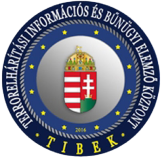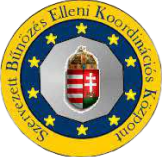ORGANISATIONAL HISTORY
Information centres – also known as “fusion” centres – are the most recent formations produced by the institutional evolution of intelligence services. Their existence is attributable to the technological development of the past 20 years, which has seen a rapid increase in the need to process, coordinate and deliver to the right decision points vast amount of data originating from an ever growing number of sources and at ever increasing speed. This phenomenon required a new approach to the role of and the relationship between humans and technology.

The first state-of-the-art information fusion centres were established in the United States of America as a response to the terror attacks on 11 September 2001. The aim was to enhance the effectiveness of the law enforcement and national security partnerships through integrated (“fused”) information management – facilitating coordination at national level – and to ensure that professional and political decisions are made in the possession of all relevant information available.
The first information fusion centres were established in Europe subsequent to the Madrid (2004) and London (2005) terrorist acts. The results of the ‘war on terror’ proved the validity of this model, and their system of duties was gradually extended to include other elements of national security, and they now play a major role in safeguarding a country’s security.
As a forerunner of information fusion centres in Hungary, the Coordination Centre Against Organized Crime merged the information held by the police and the national security services. The next step, in response to the terrorist attacks in Paris (2015) and Brussels (2016), was the creation of the Counter-Terrorism Information and Criminal Analysis Centre , which carried out its mission as part of the national security service as of its establishment.The first information fusion centres were established in Europe subsequent to the Madrid (2004) and London (2005) terrorist acts. The results of the ‘war on terror’ proved the validity of this model, and their system of duties was gradually extended to include other elements of national security, and they now play a major role in safeguarding a country’s security.
Established on 25 May 2022 as the youngest member of the Hungarian national security community, the National Information Centre received broader powers, primarily in the field of supporting the Government’s national security decisions and coordinating the organisations involved.

2022-
National Information Centre
On 25 May 2022, the political governance of the civilian national security services was unified, the body supporting the Government’s national security decisions was restructured and the National Information Centre was established as the legal successor to the Counter-Terrorism Information and Criminal Analysis Centre. An important objective of the sectoral changes was to enable the Government to operate more effectively the information fusion system it has established for the coordinated use of current and relevant intelligence transferred by civilian national security and other law enforcement organs and for the targeted co-ordination of government intelligence needs, in line with the objectives of Hungary’s national security strategy. This process led to a coordinated and more effective use of the tools and methods of prevention, reconnaissance, intelligence, counter-intelligence and information fusion activities, based on close co-operation between government agencies. As a result of these changes, a single-channel information system has evolved, with decision support and interagency co-operation supported by information fusion based on a nationwide dataset.

2022-
National Information Centre
On 25 May 2022, the political governance of the civilian national security services was unified, the body supporting the Government’s national security decisions was restructured and the National Information Centre was established as the legal successor to the Counter-Terrorism Information and Criminal Analysis Centre. An important objective of the sectoral changes was to enable the Government to operate more effectively the information fusion system it has established for the coordinated use of current and relevant intelligence transferred by civilian national security and other law enforcement organs and for the targeted co-ordination of government intelligence needs, in line with the objectives of Hungary’s national security strategy. This process led to a coordinated and more effective use of the tools and methods of prevention, reconnaissance, intelligence, counter-intelligence and information fusion activities, based on close co-operation between government agencies. As a result of these changes, a single-channel information system has evolved, with decision support and interagency co-operation supported by information fusion based on a nationwide dataset.

2016-2022
Counter-Terrorism Information and Criminal Analysis Centre
As the successor of the Coordination Centre Against Organized Crime, the Counter-Terrorism Information and Criminal Analysis Centre (Hungarian abbreviation: TIBEK) started its operation as a new civilian national security service on 17 July 2016, based on Act CXXV of 1995 on National Security Services (Nbtv.). The new legislation granted TIBEK the mandate to act as the main information fusion and information exchange centre for law enforcement agencies, national security services and public administration bodies combating threats to public safety and national security. Its establishment was prompted by the recognition that future security risks are expected to stem primarily from terrorism, organised crime and extremist organisations, which constitute the focal points of threats to democratic state institutions, national and public security. The means to counter these threats have been limited in the past, and their legal framework and organisational forms had to be restructured. TIBEK, a national security service holding general authorisation to process data and acting in co-operation with a wide range of collaborating agencies, has taken the first steps towards becoming able to provide substantive support to law enforcement and national security activities against acts or attacks threatening national security or public safety, to assist governmental and security policy making and to meet information needs.

2016-2022
Counter-Terrorism Information and Criminal Analysis Centre
As the successor of the Coordination Centre Against Organized Crime, the Counter-Terrorism Information and Criminal Analysis Centre (Hungarian abbreviation: TIBEK) started its operation as a new civilian national security service on 17 July 2016, based on Act CXXV of 1995 on National Security Services (Nbtv.). The new legislation granted TIBEK the mandate to act as the main information fusion and information exchange centre for law enforcement agencies, national security services and public administration bodies combating threats to public safety and national security. Its establishment was prompted by the recognition that future security risks are expected to stem primarily from terrorism, organised crime and extremist organisations, which constitute the focal points of threats to democratic state institutions, national and public security. The means to counter these threats have been limited in the past, and their legal framework and organisational forms had to be restructured. TIBEK, a national security service holding general authorisation to process data and acting in co-operation with a wide range of collaborating agencies, has taken the first steps towards becoming able to provide substantive support to law enforcement and national security activities against acts or attacks threatening national security or public safety, to assist governmental and security policy making and to meet information needs.

2001-2016
Coordination Centre Against Organized Crime
In order to increase the effectiveness of the fight against organised crime, to enhance the efficiency of cooperation between state bodies involved in the investigation of criminal offences , and to detect and unravel parallel investigations, the National Assembly passed a law establishing an independent central office, the Coordination Centre against Organised Crime (Hungarian abbreviation: SZEBEKK) (Act CXXVI of 2000). SZEBEKK carried out its mission aimed at the prevention, disruption and reconnaissance of criminal offences – listed exhaustively in the relevant legislation – from 1 January 2001 until the establishment of the Counter-Terrorism Information and Criminal Analysis Centre on 17 July 2016. In this context, it carried out data collection, information provision, research, analysis, evaluation and decision support activities. Its mission was expanded from 1 January 2015 and it collected, analysed and processed passenger name records (PNR data) as a passenger information unit.

2001-2016
Coordination Centre Against Organized Crime
In order to increase the effectiveness of the fight against organised crime, to enhance the efficiency of cooperation between state bodies involved in the investigation of criminal offences , and to detect and unravel parallel investigations, the National Assembly passed a law establishing an independent central office, the Coordination Centre against Organised Crime (Hungarian abbreviation: SZEBEKK) (Act CXXVI of 2000). SZEBEKK carried out its mission aimed at the prevention, disruption and reconnaissance of criminal offences – listed exhaustively in the relevant legislation – from 1 January 2001 until the establishment of the Counter-Terrorism Information and Criminal Analysis Centre on 17 July 2016. In this context, it carried out data collection, information provision, research, analysis, evaluation and decision support activities. Its mission was expanded from 1 January 2015 and it collected, analysed and processed passenger name records (PNR data) as a passenger information unit.